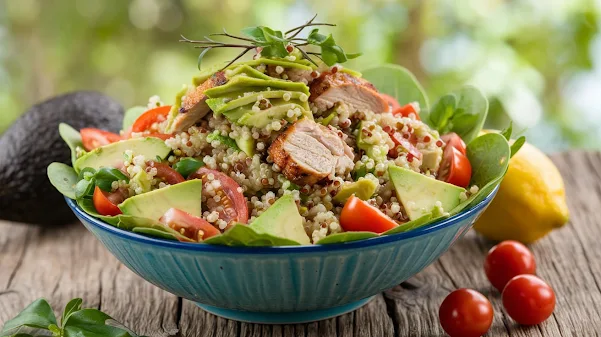Walk into any grocery store today, and you’ll see “gluten-free” labels everywhere — from pasta and bread to snacks and desserts. The gluten-free diet has skyrocketed in popularity, often marketed as a healthier lifestyle. But is it really? Is gluten free healthier for everyone, or is it just another food trend?
Let’s dive into the facts and bust some of the most common gluten-free myths.
❌ Myth 1: Gluten-Free Automatically Means Healthier
Many people assume that “gluten-free” equals “healthy.” But that’s not always the case.
Many gluten-free products are highly processed and packed with sugar, unhealthy fats, or additives to replace the texture and taste that gluten provides. Some gluten-free breads and cookies contain more calories and fewer nutrients than their gluten-containing counterparts.
✅ Fact: A Whole Food Gluten-Free Diet Can Be Healthy
While processed gluten-free foods aren’t always better, a gluten-free diet based on whole foods can be extremely healthy — even for non-celiacs.
Foods like vegetables, fruits, lean proteins, legumes, nuts, seeds, and naturally gluten-free grains (rice, quinoa, buckwheat) are nutrient-dense and support digestion, energy, and weight management.
Many people report feeling less bloated, more energized, and healthier after switching to gluten-free whole foods.
❌ Myth 2: Only People With Celiac Disease Should Avoid Gluten
It’s true that celiac disease requires a strict gluten-free diet to avoid severe health consequences. However, studies show that many people suffer from non-celiac gluten sensitivity — experiencing symptoms like bloating, fatigue, headaches, and joint pain when consuming gluten.
For these individuals, cutting gluten can improve quality of life, even without a celiac diagnosis.
Fact: Gluten-Free Can Support Weight Loss (When Done Right)
Some people lose weight on a gluten-free diet — but not because gluten itself causes weight gain. Instead, eliminating processed gluten foods like pizza, cookies, and white bread naturally reduces empty calories and refined carbs.
Replacing these foods with whole, nutrient-dense options is the real key to healthier weight management.
❌ Myth 3: Gluten-Free is Just a Fad
While the gluten-free trend gained popularity thanks to celebrities and social media, it’s not just hype. More research continues to uncover how gluten affects gut health, inflammation, and autoimmunity — even in people without celiac disease.
Many experts now agree that some people are simply better off minimizing gluten for better digestion, energy, and overall well-being.
✅ So… Is Gluten-Free Healthier?
The answer: It depends on how you approach it.
-
If your gluten-free diet is built on processed foods full of sugar and additives — it’s not healthier.
-
If you focus on whole, naturally gluten-free foods like fruits, vegetables, lean proteins, and healthy grains — it absolutely can be a healthier lifestyle.
🌟 Final Thoughts
The gluten-free diet isn’t just a buzzword — it can offer real health benefits for many people. Whether you’re celiac, gluten sensitive, or simply curious, understanding the truth behind the label is key.
Is gluten free healthier? It can be — but it all depends on your food choices.
Listen to your body, choose whole foods, and focus on balance — that’s the real secret to better health.





